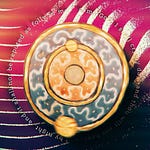They repaid me evil for good: to the depriving me of my soul. (Psalm 34:12 DR)
Whenever we engage in a transaction with somebody, we expect a payment or recompense in proportion or in kind. For example, at your job you pay your employer with time and skill for specific tasks, and that employer recompenses you with a wage or salary. When you purchase a product, you pay the merchant in some form of currency or item, and are repaid with the item you wish to purchase.
This also undergirds our conception of justice, even though different terminology is often used. The punishment owed to a crime is—in terms of justice—commensurate or proportionate to the crime as far as possible. The same is true for justice for righteous acts; for example, a soldier who sacrifices for his nation and people would expect honor for such service.
This notion of rewards and payments commensurate with the things we do is built-in to our nature as part of justice, justice itself simply being giving to each what he is due. It is thus more often in the miscarriage of justice that we feel the disproportion between good and evil, between ought and the failure to render to one what one is due.
The Psalmist takes up this theme and expands upon it from the previous passage, wherein he was accused of things of which he was innocent. The parallelism intensifies this here in that not only was he innocent, but this innocence was manifested in his doing good to those who rose up against him, and the reward for his efforts was accusations of evil. Thus, they repaid him evil for good.
The injustice of this is of course manifest, but even greater than simply committing an evil against him. For when we do good to someone we might expect good in return, but as has already been seen in this Psalm, the good he performs to those who accuse him is done even in the face of their wickedness. In previous passages he has been praying for their conversion, which presumes that he expects no reward from them for the good he shows to them. That is, he prays for them without expecting anything in return simply because he desires good to them.
Thus, to be repaid with evil for such a good becomes gratuitous and manifests the depths of their depravity:
I gave unto them fruitfulness, they rewarded Me barrenness; I gave life, they death; I honour, they dishonour; I medicine, they wounds; and in all these which they rewarded Me, was truly barrenness. This barrenness in the tree He cursed, when seeking fruit He found none. [Matthew 21:19] Leaves there were, and fruit there was not: words there were, and deeds there were not. See of words abundance, and of deeds barrenness. Thou that preachest a man should not steal, stealest: thou that sayest a man should not commit adultery, committest adultery. [Romans 2:21-22] (St. Augustine, Expositions on the Psalms, 34, Exposition 2, 2.)
St. Augustine alludes to the passage in the Gospel of Matthew where Jesus looks for fruit in a fig tree and finds none, and curses it to never bear fruit, at which point it withers. The parallel passage in the Gospel of Mark adds the note that it was not the season for figs, which seems to make the cursing of the tree seem, at first glance, to be somewhat odd, as one wouldn’t yet expect to find figs at that time of year. However, fig trees were understood to be trees that produced fruit before leaves, as Pliny the Elder relates:
The other trees, again, bear their fruit beneath the leaves, for the purpose of protection, with the exception of the fig, the leaf of which is very large, and gives a great abundance of shade; hence it is that we find the fruit placed above it; in addition to which, the leaf makes its appearance after the fruit. (Pliny the Elder, The Natural History, Book 16, Chapter 49)
Given that this episode is connected in both Gospels with Jesus’ triumphal entry and cleansing of the temple, the cursing of the fig tree finds its significance. It was not the season for figs, yet the tree had leaves, which offers the impression of being fruitful. If the fig tree produces fruit before its leaves, then its lack of fruit indicates that there is the appearance of fruitfulness but a barrenness beneath.
This might be seen in the triumphal entry where our Lord is hailed as king, yet a week later will be condemned to crucifixion by the same crowds acclaiming His lordship. The Gospel of Luke presents this episode of the fig tree in the form of a parable wherein this recompense of evil for good is explicated:
A certain man had a fig tree planted in his vineyard, and he came seeking fruit on it, and found none. And he said to the dresser of the vineyard: Behold, for these three years I come seeking fruit on this fig tree, and I find none. Cut it down therefore: why cumbereth it the ground? But he answering, said to him: Lord, let it alone this year also, until I dig about it, and dung it. And if happily it bear fruit: but if not, then after that thou shalt cut it down. (Luke 13:6-9 DR)
St. Augustine interprets this fig-tree as symbolizing the human race and the various ages of man:
The fig-tree is the human race. And the three years are the three times; one before the Law, the second under the Law, the third under grace. Now there is nothing unsuitable in understanding by the fig-tree the human race. For when the first man sinned, he covered his nakedness with fig-leaves; covered those members, from which we derive our birth. For what before his sin should have been his glory, after sin became his shame. So before that, they were naked, and were not ashamed. For they had no reason to blush, when no sin had gone before; nor could they blush for their Creator’s works, because they had not yet mingled any evil work of their own with the good works of their Creator. For they had not yet eaten of the tree of knowledge of good and evil, of which they had been forbidden to eat. After then that they had eaten and sinned, the human race sprang from them; that is, man from man, debtor from debtor, mortal from mortal, sinner from sinner. In this tree then he entitles those, who through the whole range of time would not bear fruit; and for this cause the axe was hanging over the unfruitful tree. (St. Augustine, Sermon 60 on the New Testament.)
The goodness of the Lord—that is, providing for the fig tree’s flourishing—with which he is repaid with evil—that is, with barrenness—is thus brought out in His offering the prospect of repentance even amidst such evils:
You shall come: When? You shall come in judgment, when You shall come to judge the quick and dead. Meanwhile they are spared. But what is the digging? What is the digging about it, but the teaching lowliness and repentance? For a ditch is low ground. The basket of dung understand in its good effects. It is filthy, but it produces fruit. The gardener’s filth is the sinner’s sorrows. They who repent, repent in filthy robes; if, that is, they understand aright, and repent in truth. To this tree then is it said, Repent ye, for the kingdom of heaven is at hand. (St. Augustine, Sermon 60 on the New Testament.)
The patience of our Lord is a manifestation of His loving-kindness that we might come to penance:
The Lord delayeth not his promise, as some imagine, but dealeth patiently for your sake, not willing that any should perish, but that all should return to penance. (2 Peter 3:9 DR)
It is in the midst of this evil that the Psalmist is deprived of his soul, which prophetically looks forward to our Lord’s death upon the cross. The great irony, however, is that the evil recompensed for good will be turned to mankind’s ultimate good, as our Lord through His death and resurrection will reconcile man to the Father. He came in humility, and makes fruitful the barren ground so that we can produce the fruit of repentance:
Abide in me, and I in you. As the branch cannot bear fruit of itself, unless it abide in the vine, so neither can you, unless you abide in me. I am the vine: you the branches: he that abideth in me, and I in him, the same beareth much fruit: for without me you can do nothing. If any one abide not in me, he shall be cast forth as a branch, and shall wither, and they shall gather him up, and cast him into the fire, and he burneth. If you abide in me, and my words abide in you, you shall ask whatever you will, and it shall be done unto you. In this is my Father glorified; that you bring forth very much fruit, and become my disciples. (John 15:4-8 DR)
The Psalmist speaks prophetic words of Christ, but also of His body the Church, whose members are called to follow in His footsteps and thus suffer willingly the recompense of evil for good, while at the same time rendering good for evil in imitation of our Lord. This is the fruit that our Lord expects to find in the midst of our leaves if we are united to Him in charity:
To no man rendering evil for evil. Providing good things, not only in the sight of God, but also in the sight of all men. If it be possible, as much as is in you, have peace with all men. Revenge not yourselves, my dearly beloved; but give place unto wrath, for it is written: Revenge is mine, I will repay, saith the Lord. But if thy enemy be hungry, give him to eat; if he thirst, give him to drink. For, doing this, thou shalt heap coals of fire upon his head. Be not overcome by evil, but overcome evil by good. (Romans 12:17-21 DR)
I found this excellent painting of Jesus as the Man of Sorrows and isolated it in Photoshop. In After Effects I added an ellipse for a halo and used Shadow Studio in an inverted way to create the light coming from the halo.
I then used many effects to create the halftone vintage look and used some more color correction and glows and noise to complete this.
Enjoy.
They repaid me evil for good: to the depriving me of my soul.
(Psalm 34:12 DR)
View a higher quality version of this gif here:










